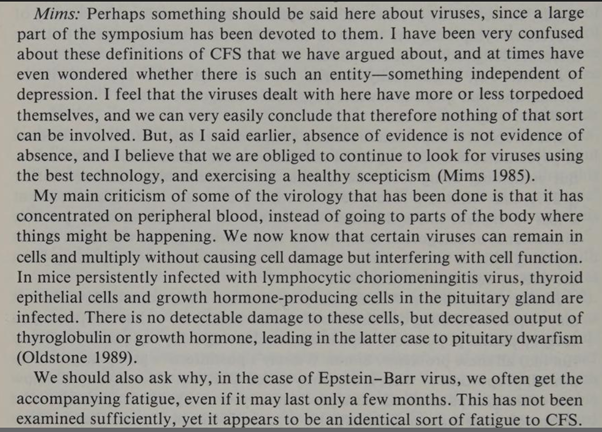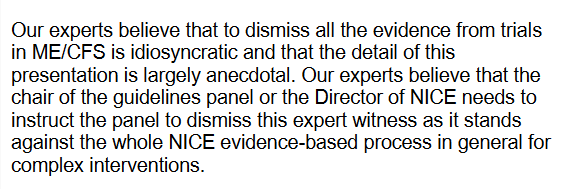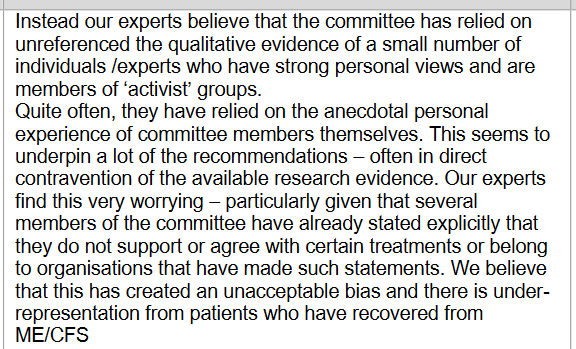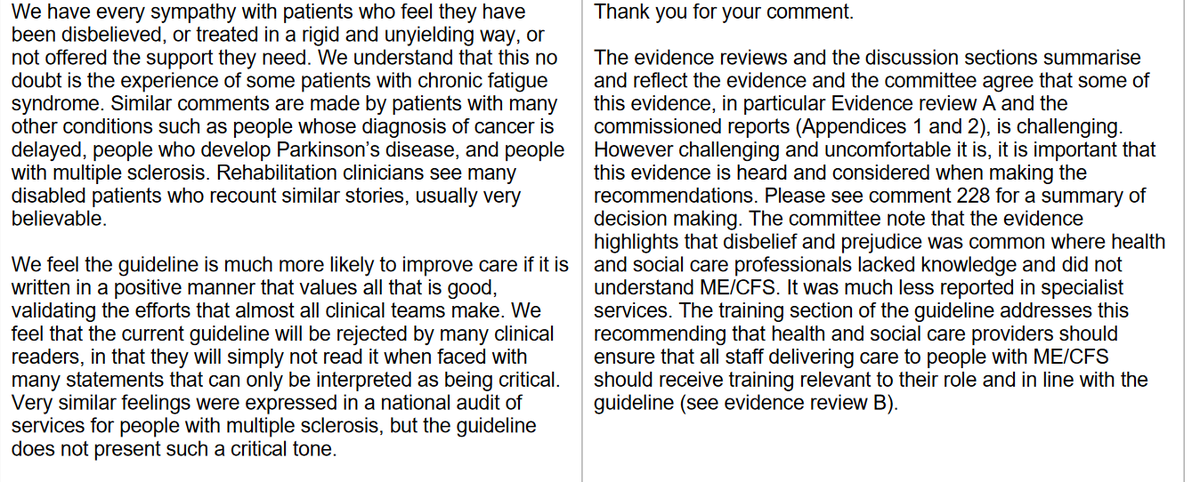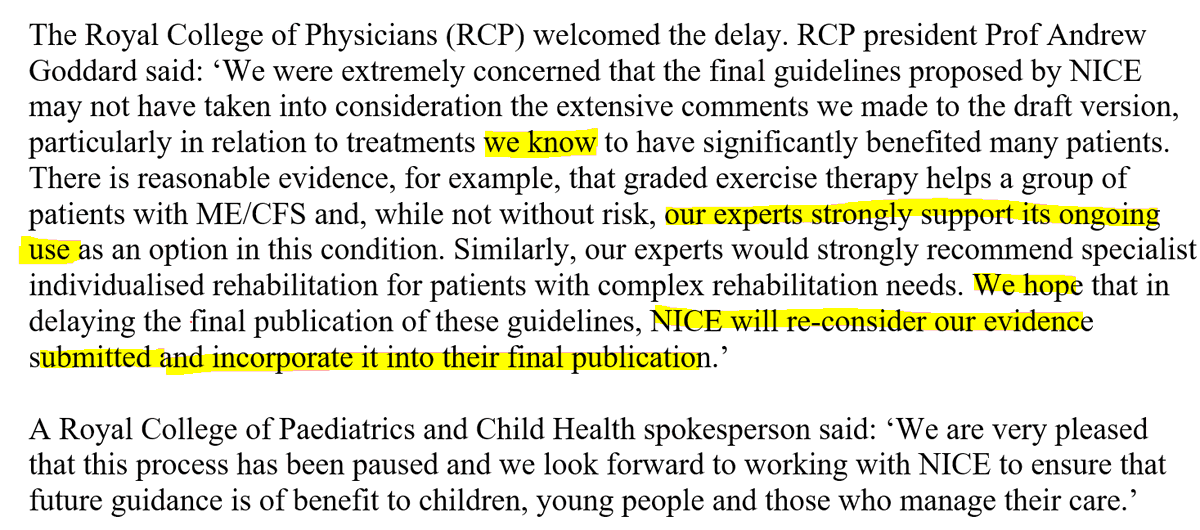
I've just watched the below talk by Prof Clarke and his colleagues at IAPT and I have a concern with the research he cites as a good example of IAPTs ability to treat Long-Term Health Conditions LTCs. I shall take you through some observations - may be something @CBTWatch look at
https://twitter.com/brazendale5/status/1464288644018192386
1st the cited study being used in the video for the economic benefits of IAPT treatment of LTCs comes from an IAPT commissioned study of their own early introduction of CBT providers eg Thames Valley. Prof Clarke is a co-author of the paper. journals.sagepub.com/doi/abs/10.117…
2nd I noted that whilst this is said to be a study of LTC treatment, its actually a study of patients with depression and anxiety - clear - who also happen to have LTCs. Essentially whilst this is meant to be a study of patients with CFS, pain, post-cancer fatigue, its not. 

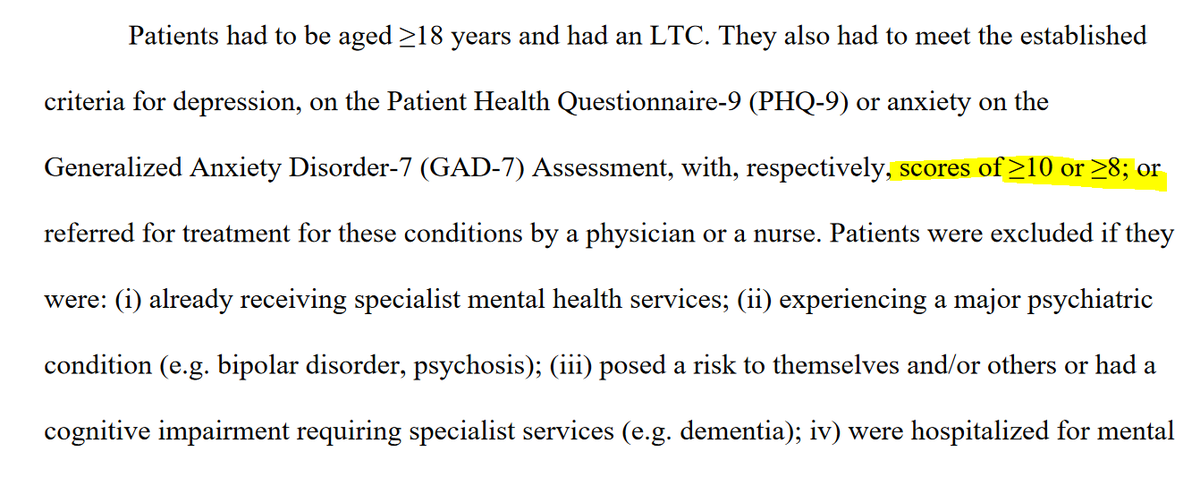
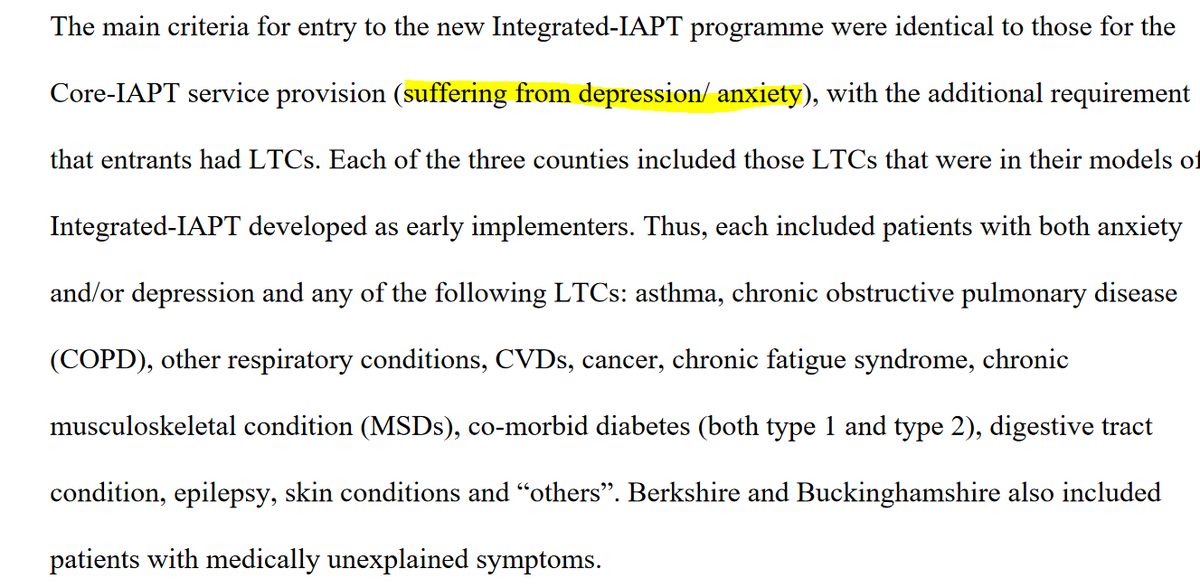
3rd can you follow these numbers - we start off with around 1000 patients, cohort 1 is the study group (early treatment group for LTCs) cohort 2 is the control group (late followers studied when no treatment wait list) the numbers jump all around - we end up 85 get high intensity 
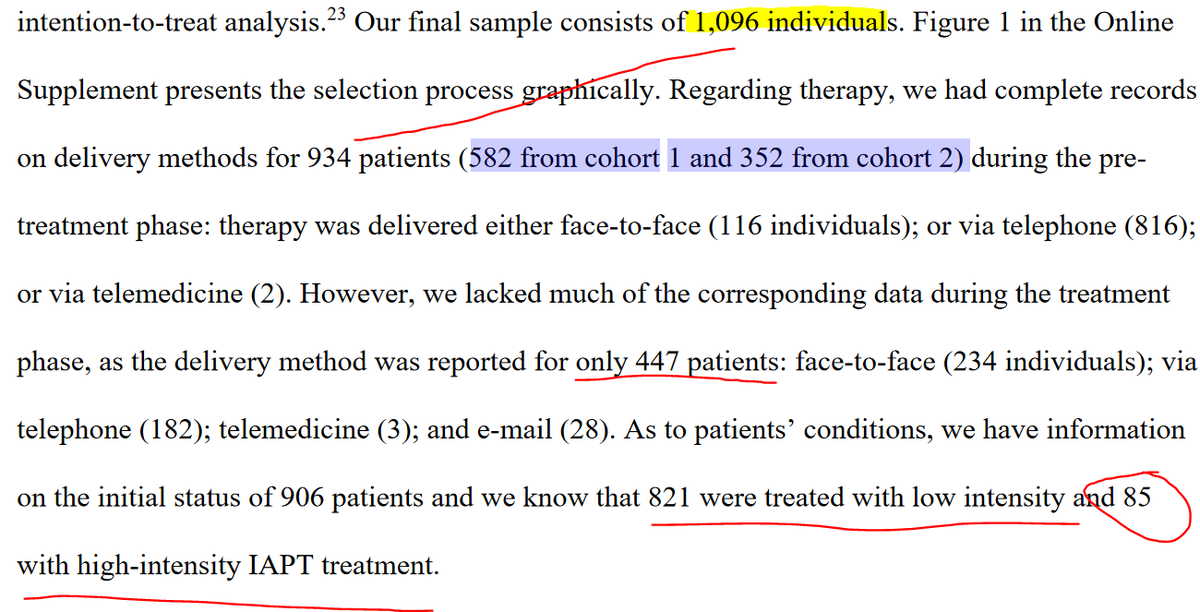
4th the expressed Goal was to show CBT is a good treatment for LTCs, gets people back to work and reduces spending on medical care. BUT as far as I can see this is far from a solid study - its so all over the place I find it hard to keep reading. People dropped, verbal consents 
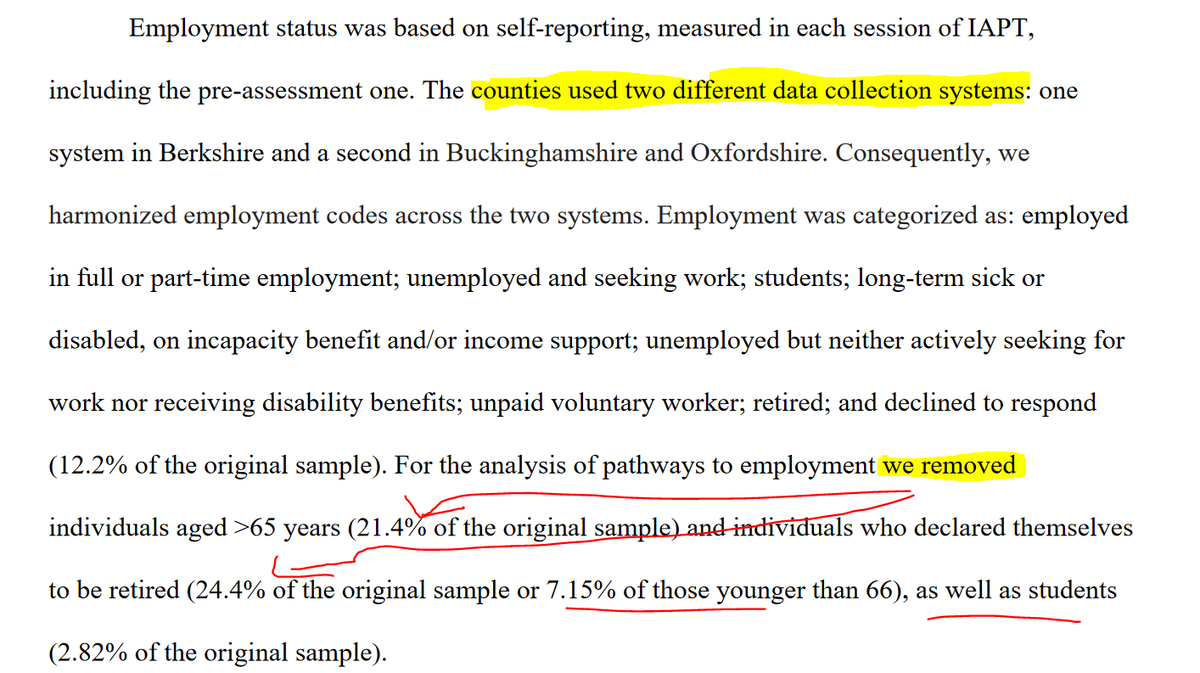
..Prof Clarke's study actually states that almost half of his 1000 patients followed in IAPT treatment DID not know their Employment status! really? -- can we trust this paper? In the previous paragraph they excluded people over 65, now a few more over 65 excluded too, who? 
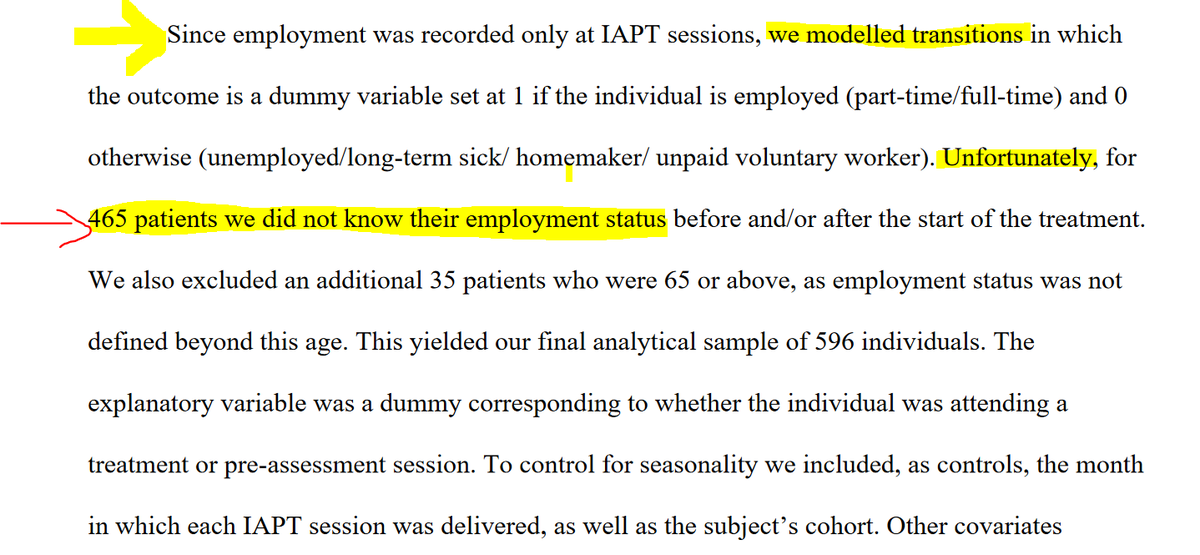
its a hard study to follow - it seems the control group, who are just waiting are having improvements in health care utilisation ie they are using less, but they are getting nothing! nice expectancy example here and impacts treatment group too. 
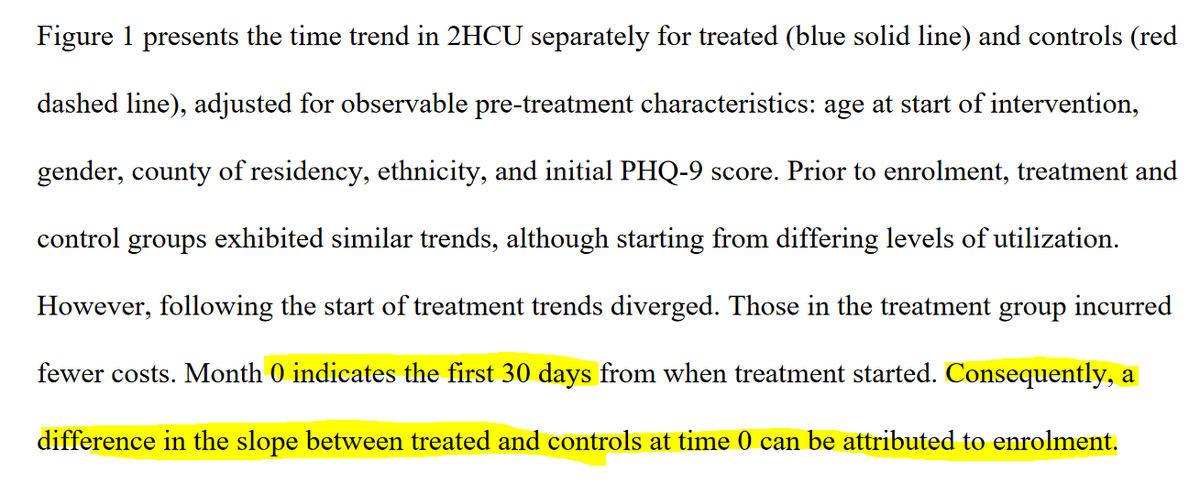
make of this what you will - everyone is improving from the get go! the treated who can get as little as 1 session and the controls who havent even started treatment ! Head shake....why are the controls using less than treated patients at start point ummm - head scratch 
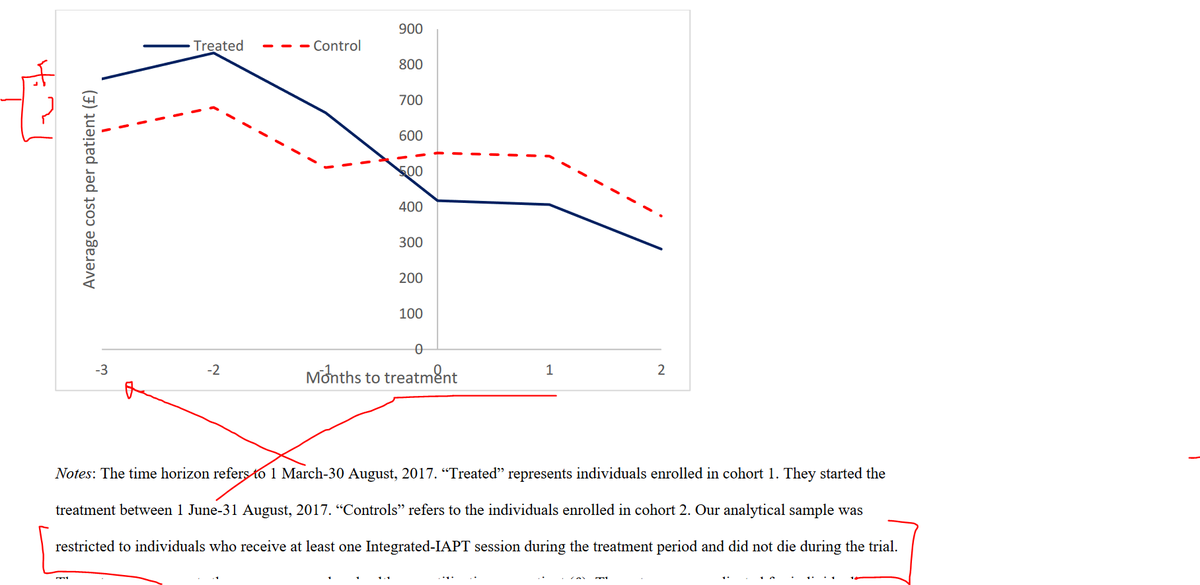
ie less health care utilisation scores - even before they start treatment ! I mean this will be a slide I use many times in many upcoming papers. Hawthorn effect, treatment expectancy - call it what you will.
Prof Clarke and colleagues argue that IAPT delivers a £360 cost saving per patient treated with LTCs in 1st 3 months, this is based on reduced Inpatient costs. But no info is given on these. AnE or outpatient little savings. I suspect some issues around whats actually going on.. 
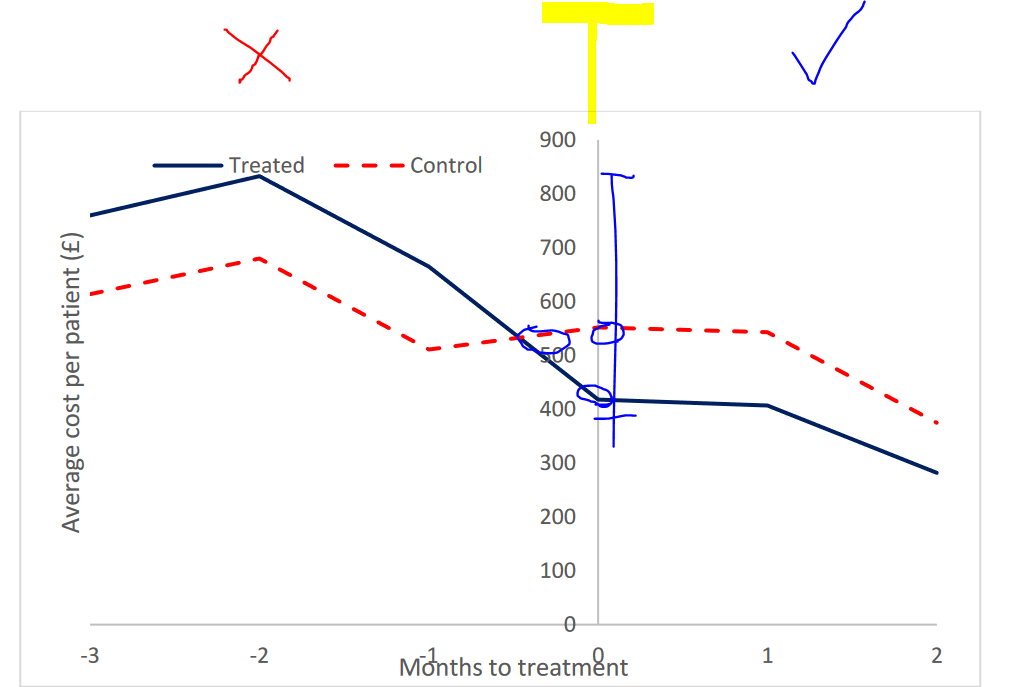
Continued: IAPT want us to trust their treatment figures & they claim they are cost effective yet in their published study of "early 1st providers of IAPT care for Long-Term Conditions" many patients' data on what treatment they got goes missing/isn't collected - why? 
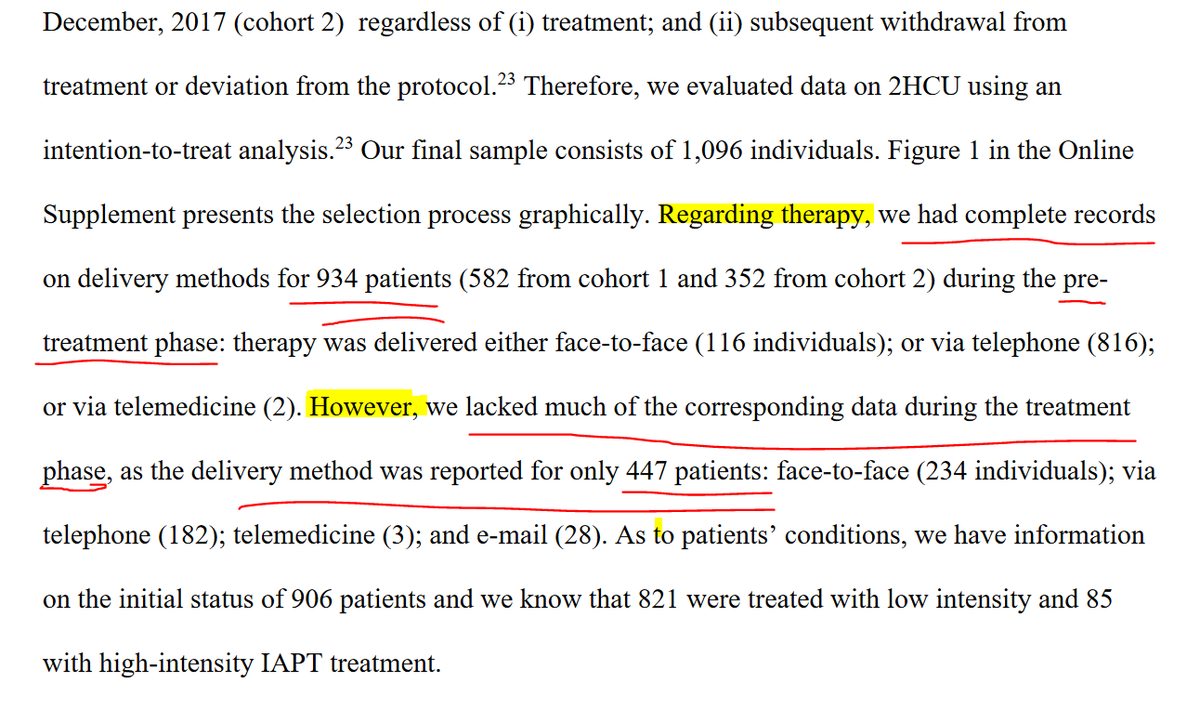
...how do we start off with 1,096 patient sample - we have data on 934 pre-treatment, then we only know 'what type of treatment delivery' eg phone, face-to-face for 447 patients? does IAPT not know what it offered these patients? Also only 85 end up getting high intensity CBT!
28 patients received an "email" from IAPT and that was counted as "treatment" ! in the treatment group who received treatment, not an email telling the patient they arent eligible - as they were the included cohorts.
the claim in this report is that patients treated by IAPT with LTCs eg COPD, cardiovascular, cancer, ME/CFS, IBS, used less hospital care and increased employment in the 1st 3 months of treatment - treatment that could be 1 phone call, skype, or email - this needs investigating! 
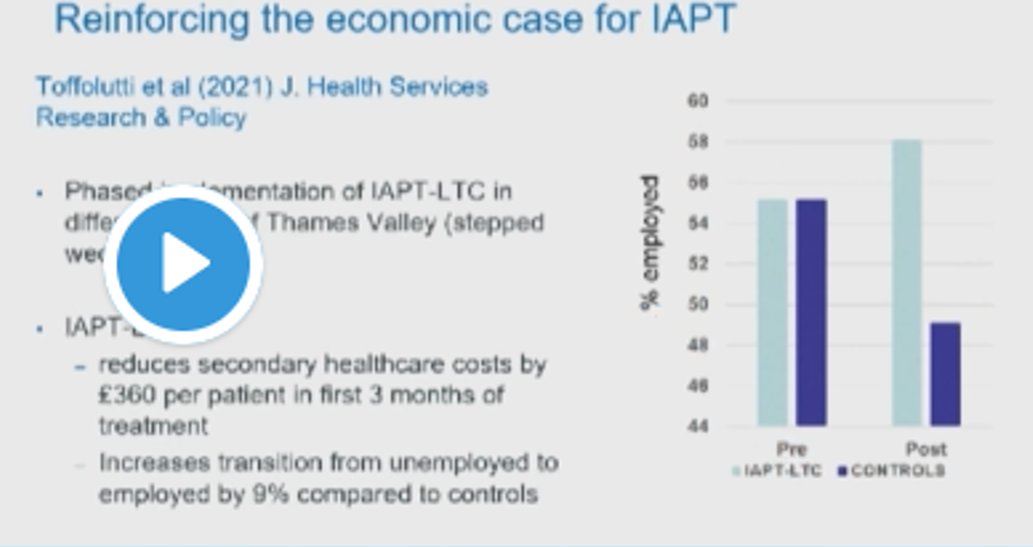
• • •
Missing some Tweet in this thread? You can try to
force a refresh


